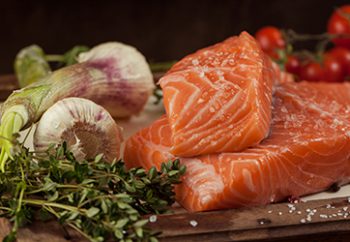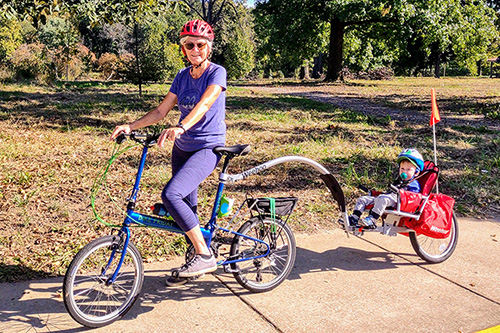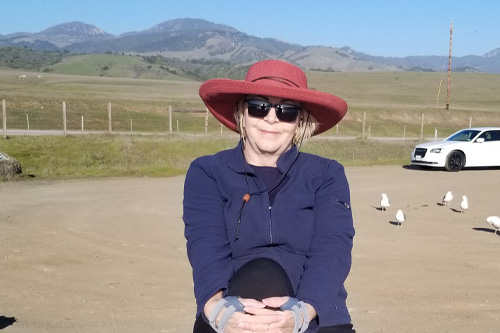By Sarah Romotsky, Registered Dietitian and Senior Director of Nutrition Communications at the International Food Information Council (IFIC) Foundation.
Treating your body with love and respect is key to healthy aging. It’s never too early to start incorporating foods and nutrients that can help set back the clock.

Three nutrients that are important for healthy aging are protein, calcium and fiber. Prioritizing these can help reduce the risk of chronic diseases, support better quality of life, help maintain independence and promote longevity.
Protein Preserves Muscle
As we age, our bodies synthesize protein at a slower rate, which can reduce the strength and function of skeletal muscle, organ tissue, blood and immune bodies. Because of this, seniors need to eat more protein to preserve lean muscle mass, support wound healing, maintain skin elasticity and fight infection.
There are many plant and animal sources of protein from which to choose, and eating a variety of them will provide essential amino acids, vitamins and minerals. Popular plant sources include beans, tofu and quinoa. Keep in mind that not all plant sources contain all essential amino acids, so eating a variety is vital.
Animal sources include meat, poultry and seafood. Choosing lean meat and poultry is recommended by the Dietary Guidelines for Americans 2015-2020. The Recommended Dietary Allowance (RDA) for protein is 0.8 g/kg/day of body weight for men and women ages 19 and older, but current research is suggesting that older adults should consume closer to 1.2 g/kg/day to prevent muscle loss and optimize physical function. Aim to eat 25-30 grams of protein per meal.
Calcium Benefits Bones
Calcium is a mineral that is involved in many functions of the body, such as muscle contraction and nerve transmission, but is mainly stored in our teeth and bones. Remember being encouraged to drink milk as a child? That was to support new bone formation, which peaks at around age 25-30
Calcium absorption is also affected if you don’t get enough vitamin D. The recommended daily allowance for calcium in individuals 51-70 is 1,000 mg for men and 1,200 mg for women. After age 70 1,200 mg is recommended for both genders. Including three or more servings of calcium containing foods such as dairy, fortified milk and cereals, and dark green leafy vegetables per day will promote strong bones.
Fibrous Foods Fight Disease
It may be no surprise that high-fiber foods including fruits, vegetables, legumes and whole grains, have associated health benefits. Many of these high fiber foods are nutrient-dense and rich in antioxidants that may help prevent cell damage. Research suggests that consuming foods that are high in antioxidants can play a role in decreasing the risk of developing certain diseases and improving skeletal muscular strength in older adults.
Including fiber-rich food to your diet also promotes a healthy GI tract, weight management, heart health and blood sugar control. Consuming five or more servings of these foods per day will support your body as you age.
Quality AND Quantity
These are just three of the nutrients in foods that can help with healthy aging but there are many more. In addition to focusing on nutrients, pay attention to how much of these you consume, as there are specific recommendations for the older population.
Learn about Oasis Healthy Habits for Adults which provides healthy eating classes in seven cities.

Sarah Romotsky is a Registered Dietitian and is the Senior Director of Nutrition Communications at the International Food Information Council (IFIC) Foundation. Sarah is committed to promoting simple, meaningful, science-based communications about food and nutrition to empower consumers to make informed choices.
Before becoming an RD, Sarah worked at top advertising agencies and in marketing for a functional food company. Sarah’s work as a dietitian includes nutrition communications, clinical nutrition, as well as supermarket and corporate wellness. Passionate about both nutrition and fitness, she is a certified group exercise instructor and has been teaching spinning classes for over eight years.






Leave A Comment
You must be logged in to post a comment.